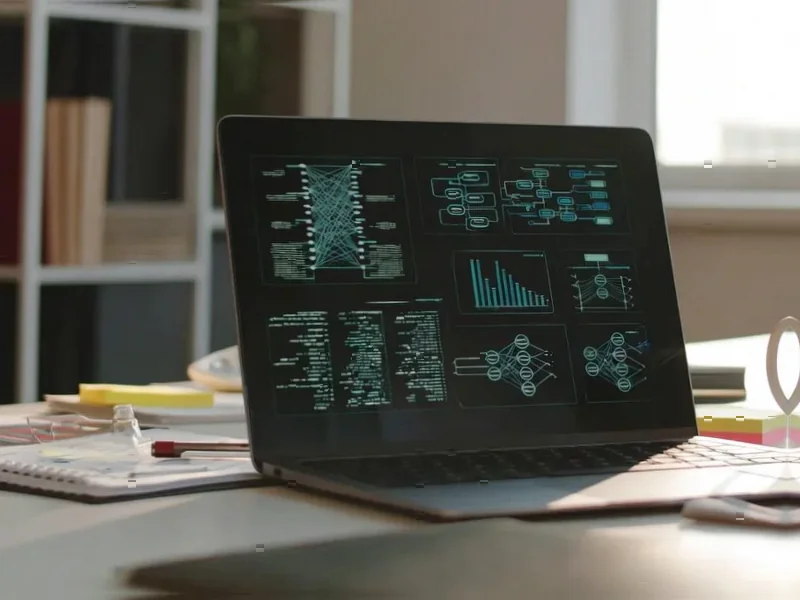According to Fortune, Alpine Macro chief global strategist Chen Zhao has identified a “jobless profit boom” where corporate earnings are surging while employment remains depressed, with private-sector payrolls still 5% below pre-pandemic trend levels despite record-high profits. Zhao specifically noted that tech sector employment has been in a “recession” for three years despite soaring profitability, pointing to recent layoffs at Amazon, Meta, and Salesforce as evidence of AI-driven displacement. The phenomenon is accelerating due to AI technology displacing labor at faster rates, while aging demographics and immigration restrictions have weakened labor supply, creating a new equilibrium that keeps unemployment low despite subdued hiring. This analysis aligns with Nobel laureate Geoffrey Hinton’s recent warnings that companies are betting on massive job replacement by AI because “that’s where the big money is going to be,” suggesting we’re witnessing a fundamental shift in how value creation relates to employment.
The Widening Stakeholder Divide
The jobless profit boom creates dramatically different outcomes for various stakeholders. For shareholders and executives, this represents an unprecedented opportunity to boost margins and stock performance through operational efficiency. However, for mid-career professionals and recent graduates entering the workforce, the landscape looks increasingly precarious. The traditional career ladder—where companies hired extensively during growth periods—is being replaced by a model where productivity gains come from technology rather than human capital expansion. This creates a particular challenge for workers in their 30s and 40s who face the dual threat of being too experienced for entry-level roles but potentially obsolete for senior positions requiring AI-integration skills.
Beyond Tech: The Coming Wave Across Industries
While the tech sector currently leads this transformation, the displacement effects will rapidly spread to knowledge work industries including finance, legal services, marketing, and consulting. As Geoffrey Hinton noted in his Bloomberg interview, the economic incentives for replacing human labor with AI systems are simply too compelling for companies to ignore. We’re already seeing early evidence in financial analysis, where AI systems can process thousands of documents in minutes, and in customer service, where sophisticated chatbots handle increasingly complex inquiries. The critical difference from previous technological revolutions is the speed of adoption—cloud computing and mobile technology took years to transform business processes, while generative AI tools are being integrated in months.
Geographic Winners and Losers
This shift will fundamentally reshape regional economic dynamics. Traditional tech hubs like Silicon Valley and Seattle may see reduced demand for certain technical roles even as their corporate headquarters generate record profits. Meanwhile, regions with strong AI research institutions and existing tech infrastructure will likely consolidate their advantages. The massive unemployment Hinton predicted to the Financial Times won’t be evenly distributed—it will disproportionately affect areas with concentrations of white-collar professional services and middle-management roles. This could reverse decades of economic development strategies focused on attracting corporate headquarters and professional services firms.
The Policy Conundrum
Current economic policies and social safety nets are ill-equipped to handle this structural shift. Unemployment systems designed for temporary job loss between similar positions won’t suffice when entire career paths become obsolete. The productivity surge Zhao identifies creates a paradox: the economy grows while employment stagnates, challenging traditional models of taxation and social welfare that depend on widespread employment. We may need to reconsider fundamental aspects of our economic system, including potential shifts toward profit-sharing models, universal basic income experiments, or completely new approaches to linking economic output with individual prosperity. The coming years will test whether capitalist systems can adapt to an era where corporate success no longer directly correlates with broad-based employment growth.
Beyond Displacement: The Skills Revolution
The most significant long-term impact may be the redefinition of valuable human skills in the workplace. Rather than eliminating all jobs, AI is creating a barbell effect—high-value strategic and creative roles at one end, and essential service positions at the other, with middle-tier analytical and coordination roles facing the greatest displacement. Workers who can effectively collaborate with AI systems, manage AI-driven workflows, and apply human judgment to AI-generated insights will find increasing opportunities. However, this requires a massive retraining effort that current educational institutions and corporate training programs are poorly positioned to deliver at scale. The transition period could last a decade or more, creating significant social and economic disruption before new equilibriums emerge.




